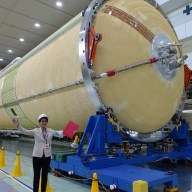It’s nighttime in Indonesia when we get Jason Mraz on the phone, although day broke just a few hours prior in New York. Mraz is in Bali for his latest tour, which features just him and percussionist, Toca Rivera, performing at iconic venues like the Sydney Opera House and, this week, Carnegie Hall. Mraz gave us some insight into these stripped-down shows.
How’s your tour going so far?
It goes well. I can’t complain because we’re in Bali at the moment, and I never thought that my tours would bring me here. But it’s going superb. The night before last we played in Taiwan to a captive crowd of 3,000 people. As a musician, you get spoiled when an audience gives you the silence that you crave. When there’s a silent cavern for you to perform in, the sound truly exists in its truest form and I get off on that. I predict, similarly, that will be what Carnegie Hall is about.
Why did you decide to come to New York?
Well, first of all, we really just tried to pick great locations and great venues that we’ve always wanted to play, because this isn’t about promoting an album — we’re just having an opportunity to put our music out there. I wanted to be able to revisit the past ten years of the — I don’t wanna call it the hustle, or the grind, but the last ten years of expression, while at the same time exploring a lot of the new material that’s been coming out, and doing so in intimate and gorgeous locations that we thought our fans would appreciate. We could come to New York and play in any theater or club, and our fans would come, but why not give them the experience of Carnegie Hall as well? And for the musician, it’s perhaps the pinnacle. It’s what you to aspire to, to play in these historic venues. I’ve played in more than one basketball court, and arena, and coliseum, but when you get to play in a venue that was created specifically for music or art, then the words, the lyrics — it’s going to be so much more powerful in that space, as will the receiving of those words, the listening. We’re doing it partly for our own selfish reasons but also knowing that our fans really appreciate it as well.
Are things different when you play these songs now, as opposed to when you first wrote them?
There’s occasionally the song or two, or twelve, or 20, that gets retired, simply because as we evolve as humans, as artists, you identify less with them. But I think the only thing that’s changed, honestly, other than time, are little silly things like hotel accommodations. The core of what we do is the same: We’re still singing songs about gratitude, transformation, self-awareness, love, self-empowerment — it’s just really human stuff.
One of your shows at Carnegie Hall will be just for children. Do you have babies on the brain or something?
I don’t have babies on the brain (laughs), but I have many friends who do have babies on their laps now, and the past couple of years I also noticed that our fans are having babies. I’ve written a few songs in the past couple of years that I’ve set aside because I’ve said, “These sound like they belong on a kids album.” Reintroducing these songs in a kids show seems like the best place to test the material out before I do dive into something like a kids album, which I think will show up in the next couple of years. It’s not that I wanna make an album for kids, it’s that I wanna make an album for the parents who I know have to listen to kids albums a thousand times in a row. My brother, for instance, who has a 5-year-old son, we get in the car and the most absurd music comes on and the song is on repeat — I don’t know what it is, but it’s all like noise and bells and whistles and goofy voices and stuff, so I have compassion for him and wanna make an album for that.
And you have a new album set to come out in 2012?
Yeah, it’s finally finished. It isn’t a departure from anything that we’ve done in the past — there’s certainly a new sound but it isn’t a departure from the genre. The sound is rich in texture, I think the vocal performances are strong [and] the themes tie together really well on this album. I’ve always been a writer that likes to explore the contradictions, or the paradoxes in life, or the balance in life, and how all of it I think is necessary, so this new album just kinda carries on that same path of thought.
You and Colbie Caillat had great success with the song “Lucky.” Will there be any duets on your next album?
There aren’t any stand-out duets on this album but there’s one or two vocalists in the background that may or may not be familiar. It’s a very personal record.
Do you think it’s your most personal yet?
No, I don’t know. To me they’re all my most personal, because I can only write about what I know. Certainly this album was a triumph through the process and creating it, for many different reasons, but I don’t know.
You’re touring with just your percussionist. Do you guys ever fight on the road? How do get through that?
Oh yeah. Usually we just smile, laugh and hug and carry on. We know that if we don’t restore love it’s not gonna work on stage, or it’s not gonna work on tour. Maybe that’s what makes our shows work: there is a brotherhood, and it’s not just a brotherhood that’s all love-based, it’s brotherhood that’s constantly tested and is constantly being developed and understood. This tour, we’re calling it a grateful journey because it’s gratitude that always brings us back to being present, brings us back to love.
What do you want your fans to come away from when they leave the show?
Well, I don’t go out there with an expectation of what they’re gonna walk away with, but I am open to the possibility that they could maybe for a moment get a sense of peace, or maybe for the duration of the show, or maybe that it carries with them through the week. I also love that somehow my story could translate into their story, meaning this is just an ordinary kid from Virginia who stumbled upon these gifts, who through the act of sharing them and following a dream has ended up on the stage at Carnegie Hall. It wasn’t because I went to a special school and studied or had influential parents — my fame, I feel, has always been more accidental because I followed my dream. And I would hope that people leave there thinking there’s still a dream in them that deserves to be pursued. I also hope people are just are entertained, that they come and just for those hours enjoy the sounds that we make, enjoy the songs, the metaphors, the jokes that are inside the songs, or at the deepest level, a part of them is healed in the experience. There’s always art going on around us. I think New York City is definitely art from top to bottom. When you go to a concert you can expect art, and there’s gonna be music which I think has a divine healing quality. When an artist commits to that and shares it with an audience, that audience knows they’re getting it in the now moment — it creates a certain kind of consciousness that may not exist at work or in a back of a cab. Whether the artists notice it or not, something deep is going on in the mind of the listener.

















